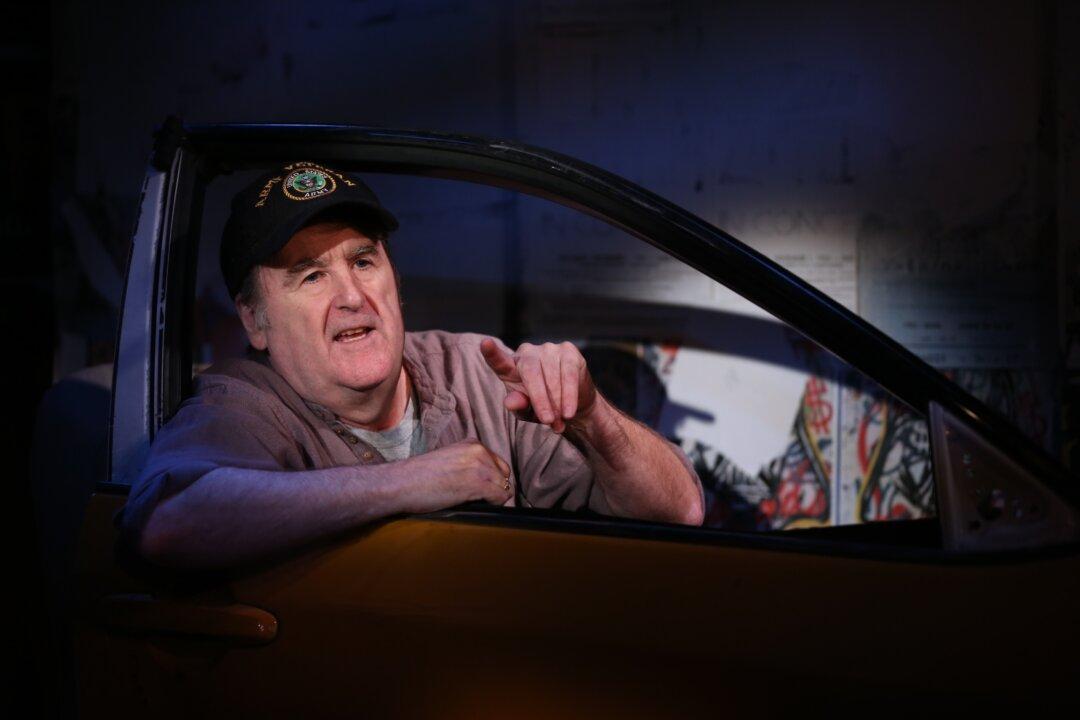NEW YORK—John McDonagh has never delivered a baby in the back seat of his cab, but he’s come close. Mixing the hilarious with the bittersweet in his one-person show, “Off the Meter, On the Record,” he looks back on his 35 years of driving a taxi in New York City as seen from the front seat and rearview mirror. This engaging production runs on all cylinders at the Irish Repertory Theatre.
The son of Irish immigrants, McDonagh got his hack license in the mid-1970s. It was intended to be a temporary gig, but as the years and decades went by, he still found himself behind the wheel. He did switch to the day shift as soon as he could, as the night was much more dangerous.





